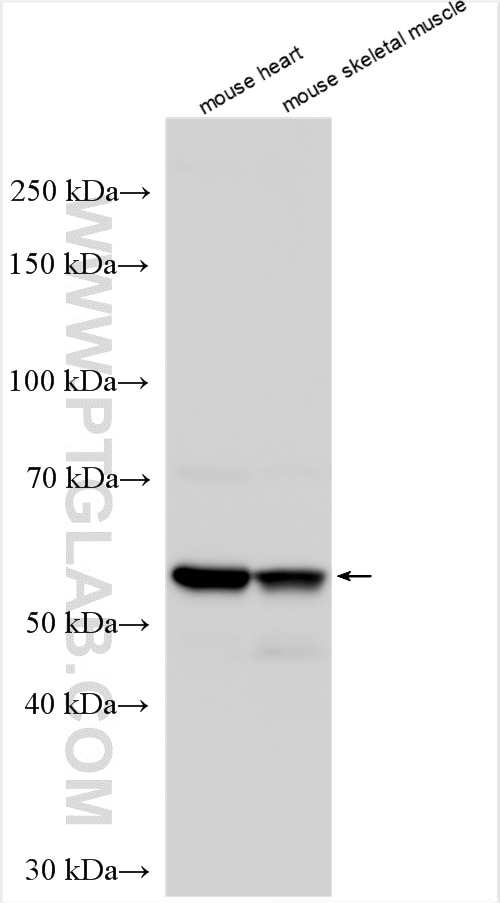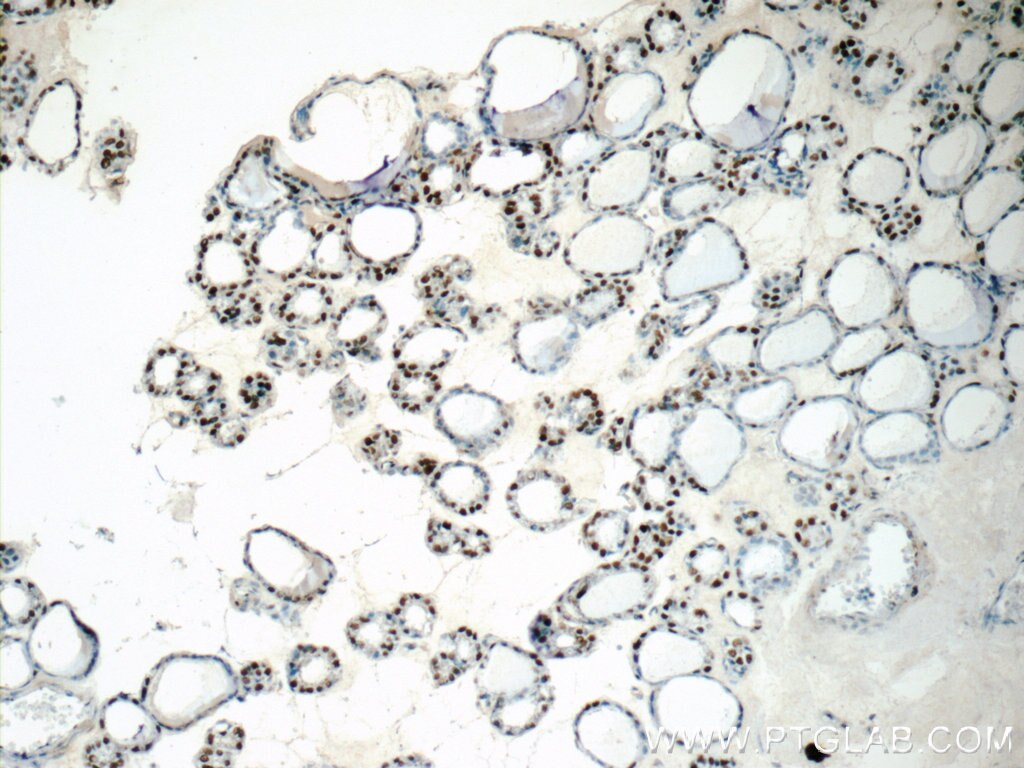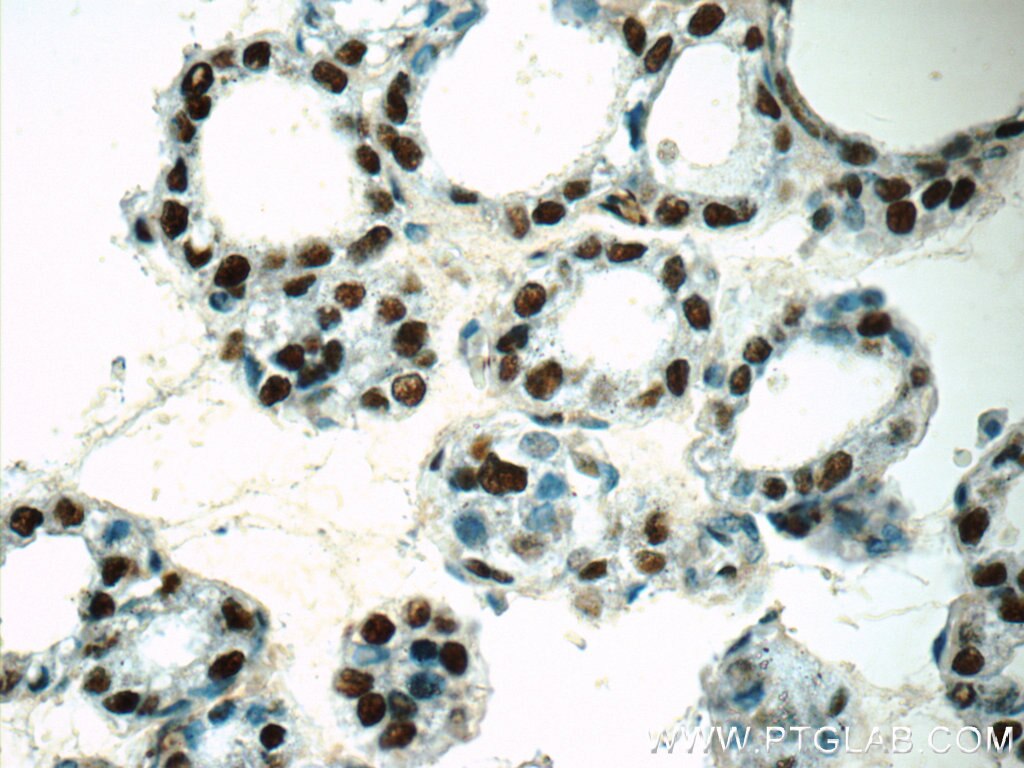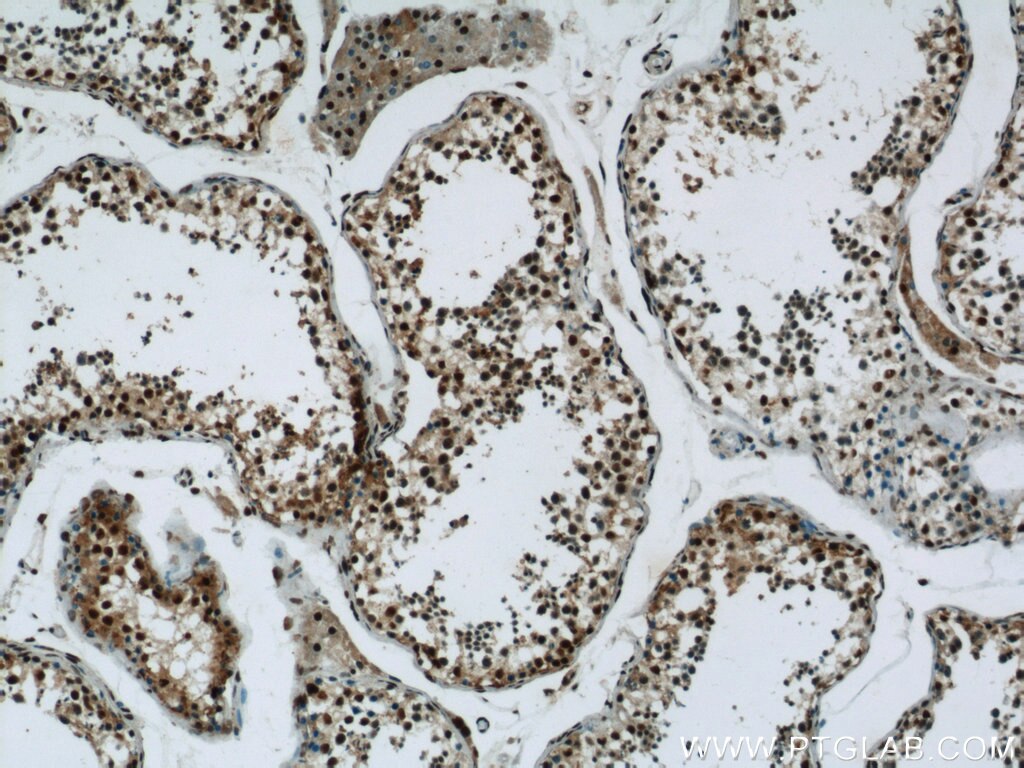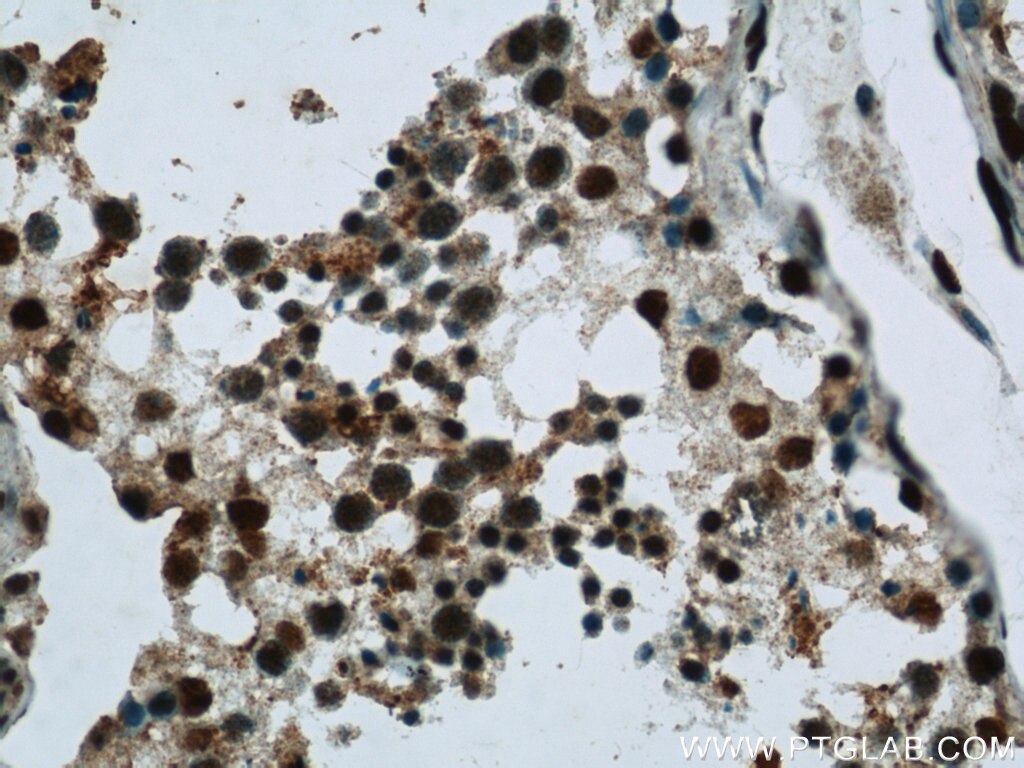Tested Applications
| Positive WB detected in | mouse heart tissue, mouse skeletal muscle tissue |
| Positive IHC detected in | human thyroid tissue, human testis tissue Note: suggested antigen retrieval with TE buffer pH 9.0; (*) Alternatively, antigen retrieval may be performed with citrate buffer pH 6.0 |
Recommended dilution
| Application | Dilution |
|---|---|
| Western Blot (WB) | WB : 1:1000-1:6000 |
| Immunohistochemistry (IHC) | IHC : 1:20-1:200 |
| It is recommended that this reagent should be titrated in each testing system to obtain optimal results. | |
| Sample-dependent, Check data in validation data gallery. | |
Published Applications
| KD/KO | See 1 publications below |
| WB | See 1 publications below |
Product Information
15575-1-AP targets GMCL1 in WB, IHC, ELISA applications and shows reactivity with human, mouse, rat samples.
| Tested Reactivity | human, mouse, rat |
| Cited Reactivity | human |
| Host / Isotype | Rabbit / IgG |
| Class | Polyclonal |
| Type | Antibody |
| Immunogen |
CatNo: Ag7929 Product name: Recombinant human GMCL1 protein Source: e coli.-derived, PGEX-4T Tag: GST Domain: 1-347 aa of BC007420 Sequence: MGSLSSRVLRQPRPALAQQAQGARAGGSARRPDTGDDAAGHGFCYCAGSHKRKRSSGSFCYCHPDSETDEDEEEGDEQQRLLNTPRRKKLKSTSKYIYQTLFLNGENSDIKICALGEEWSLHKIYLCQSGYFSSMFSGSWKESSMNIIELEIPDQNIDVEALQVAFGSLYRDDVLIKPSRVVAILAAACLLQLDGLIQQCGETMKETVNVKTVCGYYTSAGTYGLDSVKKKCLEWLLNNLMTHQNVELFKELSINVMKQLIGSSNLFVMQVEMDIYTALKKWMFLQLVPSWNGSLKQLLTETDVWFSKQRKDFEGMAFLETEQGKPFVSVFRHLRLQYIISDLASAR Predict reactive species |
| Full Name | germ cell-less homolog 1 (Drosophila) |
| Calculated Molecular Weight | 59 kDa |
| Observed Molecular Weight | 55 kDa |
| GenBank Accession Number | BC007420 |
| Gene Symbol | GMCL1 |
| Gene ID (NCBI) | 64395 |
| RRID | AB_2878153 |
| Conjugate | Unconjugated |
| Form | Liquid |
| Purification Method | Antigen affinity purification |
| UNIPROT ID | Q96IK5 |
| Storage Buffer | PBS with 0.02% sodium azide and 50% glycerol, pH 7.3. |
| Storage Conditions | Store at -20°C. Stable for one year after shipment. Aliquoting is unnecessary for -20oC storage. 20ul sizes contain 0.1% BSA. |
Background Information
GMCL1, also named as GCL, functions in spermatogenesis. It enhances the degradation of MDM2 and increases the amount of p53 probably by modulating the nucleocytoplasmic transport. In WB test, the antibody recognizes 55 kDa band in our detection.
Protocols
| Product Specific Protocols | |
|---|---|
| IHC protocol for GMCL1 antibody 15575-1-AP | Download protocol |
| WB protocol for GMCL1 antibody 15575-1-AP | Download protocol |
| Standard Protocols | |
|---|---|
| Click here to view our Standard Protocols |

